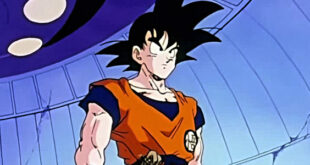Timed in the U.S. to ride on the release of his newest feature Ponyo, Hayao Miyazaki's Starting Point: 1979-1996 (Viz Media) is a hefty 461-page collection of essays, lectures, and interviews that focuses on the first part of the anime master's career. As such, the book ends just before the animator broke through to Western audiences with Princess Mononoke, giving us a look at the aesthetic growth and philosophical principles that have led to such later works as Mononoke, Spirited Away, and Howl's Moving Castle.
A strong-willed workaholic with a clear set of opinions, Miyazaki makes for an engaging reading companion. He can be harsh about the failings of both his peers and himself, blistering when it comes to describing what he considers wrongheaded storytelling. He calls, for example, the popular trend toward mecha focusing on giant fighting machinery representative of an "infantile infatuation with power" and is scornful of anime that's adapted from printed manga. "Although it may be good training," he states early in the volume, "I think it is worth bearing in mind that animating an original manga is unrewarding, even if the result is popular with the general public." He even is withering about the term "anime," stating he frankly despises "the truncated word 'anime' because to me it only symbolizes the current desolation of our industry."
Miyazaki's ferociously opinionated personality has undoubtedly helped to keep him from being ground down by the Japanese animation factory system. He's not afraid to buck the prevailing trends, making movies that remain accessible to a younger audience even as many studios have honed in on older audiences. "The future of animation," he states in a 1984 piece, "is threatened by the fact that for most films being planned today, the target age is gradually creeping upward." Yet Miyazaki approaches the continued creation of his lushly inventive all-ages fantasies with a missionary zeal.
At times, when discussing the makings of some of his earliest works, Starting Point can get obscure to those non-cognoscenti unfamiliar with works like Lupin III, Porco Rosso, or Go Panda Go. But his insights on the psychology of his young characters remain fascinating even when you're not fully versed in the early cartoons being discussed. He even carries his critical acumen into discussion of other cinematic children's works, noting of the dragon in The Neverending Story, for instance, that "the more we humans anthropomorphize something and make it an easy target for empathy, the less interesting it becomes."
Starting Point also provides a heady look into the recurring themes in Miyazaki's work, particularly his ongoing sensitivity to ecological concerns. Though his movies celebrate the natural, they do so without any condescending sentimentality. "It's not enough to just go around saying how wonderful nature is," he notes, "we also need to explain what sort of inconveniences and even harm nature can bring us." It's this ability to convey the complexities of such subjects into works being marketed as children's entertainment that makes such Miyazaki epics as Nausicaa of the Valley of the Wind and Mononoke so compelling.
Starting Point contains a few pages of Miyazaki artwork: an amusing eight-page color comic on the history of in-flight meals done for Japan Airlines' in-flight magazine back in 1994, a series of black-and-white scrapbook pages representing the artist's fascination with planes and land vehicles, plus a charming two-page boyhood reminiscence of a garden featuring dinosaur statuary. These tantalizing pages make the reader yearn for more of Miyazaki's penwork. But for that I guess we have to look back at reprints of his seven-volume manga masterwork, Nausicaa — and look forward to the next full-bodied book of provocative thoughts and reminiscence from the still vital career of this animation genius.
 Blogcritics The critical lens on today's culture & entertainment
Blogcritics The critical lens on today's culture & entertainment



